Let’s face it; some nights just don’t have it. The discussion is insipid, laced with uninspired observations, statements of the obvious, boring conversations filled with irrelevancies. This wasn’t one of those nights. Opinions and observations rolled around the table like loose cannons on deck, and the nimble of foot and word had no time or inclination to yawn.
Dennis got things off to a fast and interesting start with “A Visit From the Dead,” a two and a half page piece that held everyone’s attention and sparked a good deal of discussion. Tim and Philomena both felt the poem should be read more slowly than it was to give the reader time to assimilate what it has to say. While Philomena said she sees Dennis’ poems as mystical, Tim said they seem more religious (in a general way) than mystical, and felt this poem “has tiredness and contentment in it.” My own feeling was that it is a musing on life, and projects a feeling of acceptance. Larry started chasing down a tangent about the nature of the mind vs. the nature of the soul, and a few others helped out. Larry’s statement that “Dennis has a style that grates against my inner joints” didn’t reflect my opinion, as nobody’s style has yet had any effect on my inner or outer joints. Dennis told us he felt his parents had entered the room when he wrote the poem, which would have inspired something in my mind if it happened to me. I can’t really say, though, as my parents have never showed up at any hour, but then again I’ve never been up at 3:27 AM to write anything.
Dan gave us “The Butterfly Lovers,” a work that prompted Tim to say it struck him as the type of poem that would be written by somebody who has lived a long time. I took that to mean someone who has gained much wisdom by living a long time, as opposed to some old goat who has lapsed into senility but refuses to quit writing. The poem is a brief summary of a 17th Chinese legend. Knowledge of the legend would help the reader fully understand the poem, and when Dan related the legend we found out that “The Butterfly Lovers” is a good summary of the legend, but by adding a few more lines he can make it an even better summary. Only the word “chums” didn’t quite fit.
I presented “Hospital Waiting Room” and got several good suggestions for improving it, but once again came away with the feeling that when my poem hits the table people start trying to pick off all the individual words they can, like snipers firing from a tree line. This tendency may have something to do with Tim’s statement that “Paul applies prose rules to poetry,” which is true in more instances with my writing than with the writing of most other poets around here. I’m also a big fan of punctuation, which a good number of poets avoid, even run from. However, I left convinced that a couple of words need picking off in this poem.
Jim’s “Tercet Eight: Shadow-Poet” was well received, and prompted Tim to remark: “I love this. A very human poem.” Which it is. I see this as a poem of self-analysis. Edie pointed out it that has similarities to Dennis’ poem. The “rude one” mentioned in the second verse needs more than a reference, though, and whoever he is we need to hear something defining about him, as it is certain he is not the shadow-poet. Not withstanding that the rowdy group of complexes have the math guy’s number, I personally am confident that the math guy will rout this group of ne’er-do-wells in the end.
Larry brought “Ontology,” a poem one-fourth the size of what he brought the last time. When I opined that it seemed too short to be one of Larry’s poems, the author let slip that it is part of “a much, much longer poem.” Short though it was, it still backed up Larry’s admission that “Minutiae is one of my favorite things.” (Shouldn’t that be ARE SOME of my favorite things?) Anyway, as Philomena said: “This is a fun poem.” The dark knight calculator mentioned in the second verse was the subject of some discussion involving Batman, the dark part of our own natures, and a few other things that sailed right past me. Larry surprised me when he declared ”The dark knight is making too much of a controversy, so I’m taking it out.” I’d leave it in, myself. Dennis thought the poem was “Blakean.” Look it up. I’m not opening that keg of worms.
Philomena’s “Schenpa” was based too much on Buddhism for me to understand it, and a knowledge of Buddhism is probably essential for anyone reading this piece. A sizeable footnote to shed some light on the meaning of the word “schenpa” led me to conclude this is a personal poem not meant to communicate with a large audience.
Ann presented “The Thank You Notes,” a poem about her father receiving thank-you notes from her eighth grade class for his military service during World War II that really appealed to me. It will be even better when the use of tenses is ironed out, and some confusion about exactly who is talking to whom and what is going on at the end is cleared up. Relating some additional information in the poem should do the job. This poem really had an effect on Tim, who effortlessly jumped from Tinian in World War II to Afghanistan today. By the time he finished alternately attacking the poem then praising it, I didn’t know if he was speaking from the strength of his convictions or just trying to keep the dust stirred up. This has the potential to be one of Ann’s best, in my opinion. I hope it turns out that way.
Tim’s “Washington Park 2 AM” used the dialogue of one person to paint an effective and dramatic picture of an encounter that resulted in two gay men being chased by a pack of other men intent on doing them no good. This is another of Tim’s poems that will be a hit at open mics, as it is a performance piece for sure. There is no ambiguity in this work, and few comments were made about either the form or wording. I consider it one of Tim’s best. Dennis noted, “You have the same rhythms as Gregory Corso and Allen Ginsberg.”
Last up was Edie, who offered “Gifts From My Father.” By beginning with a reference to the inheritance of unruly hair from her father, she glides into a musing on some of her father’s traits and their influence on her. Verse one and three handle this very nicely, but verse two seems to have no apparent connection to the other two. Maybe it does, but I don’t see it, and no one offered any explanation that helped me see the connection. Verse one and three stand as a poem by themselves, though. I’d like to see verse two elaborate on either her father’s characteristics or her relationship with her father instead of doing whatever it did.
ONE OTHER THING: The Second Annual Smith’s Tavern Poet Laureate Contest is coming up on April 17, and there are still places open on the competitor list. Sign up soon if you’re interested, as the sign up period will end soon no matter how many slots remain unfilled.
Write-up by Paul
Here we are...
...a group of Baby Boomers of sundry religious,
political and cultural orientations, who have been
meeting at the Voorheesville Public Library since 1991
to read and discuss each other's poems.
We include old fathers and young grandmothers,
artists and musicians, and run-of-the-mill eccentrics.
Writers are welcome to stop in and stay if they like us.
political and cultural orientations, who have been
meeting at the Voorheesville Public Library since 1991
to read and discuss each other's poems.
We include old fathers and young grandmothers,
artists and musicians, and run-of-the-mill eccentrics.
Writers are welcome to stop in and stay if they like us.
Some of Us

Dennis Sullivan, Beverly Osborne, Tom Corrado, Edie Abrams, Art Willis, Alan Casline (all seated); Paul Amidon, Mike Burke, Tim Verhaegen, Mark O'Brien, Barbara Vink, Philomena Moriarty
Wednesday, March 30, 2011
Subscribe to:
Post Comments (Atom)



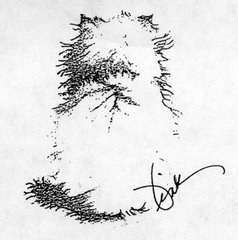













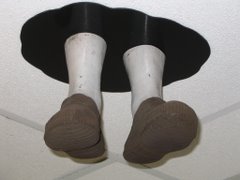


























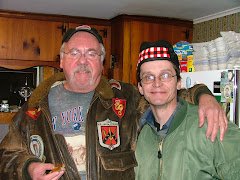
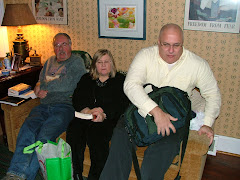
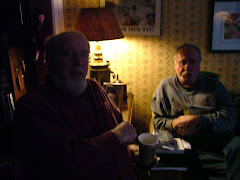

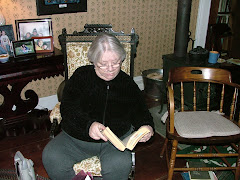

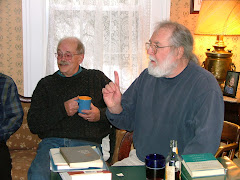
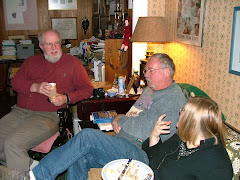
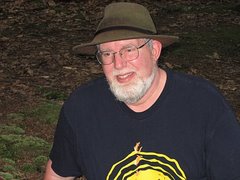
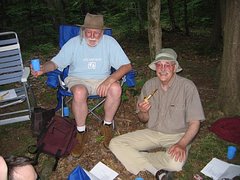
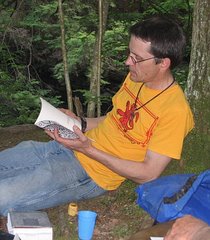
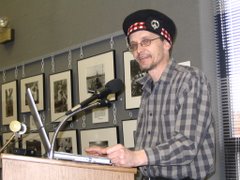

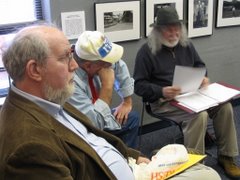
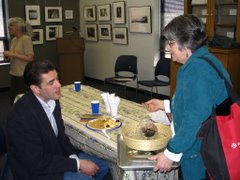


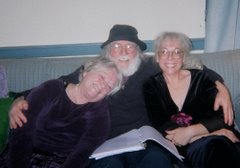
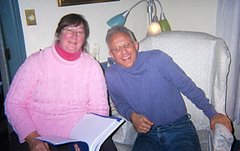
No comments:
Post a Comment